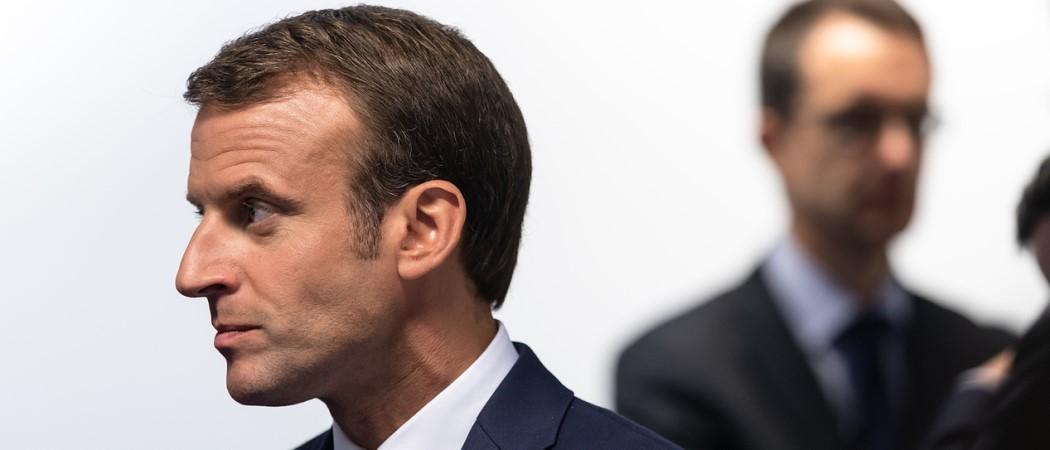President Macron’s scale-up initiative aims to bring together some of the bloc’s most successful founders to drum up ideas for fostering high growth enterprises

French president Emmanuel Macron.
An exclusive group of politicians, entrepreneurs and investors met remotely in Paris on Thursday to diagnose ways to help start-ups in Europe overcome the barriers to becoming midsize companies.
Figures including French digital minister Cedric O, investors like Atomico’s Niklas Zennstrom, and entrepreneurs including Jean-Charles Samuelian, CEO and co-founder of the digital health insurance company Alan, officially launched the President Emmanuel Macron-instigated Scale-Up Initiative at an event in the Station F tech incubator.
Over the coming months, the group intends to harvest the best ideas of more than 150 entrepreneurs, researchers, investors, corporates and politicians on how to grow more high-growth companies in Europe. The result will be a series of policy recommendations for European leaders, to be presented during the French presidency of the EU in early 2022.
The spur for the initiative, which will unfold in a series of workshops, starts with the simple acknowledgement that Europe doesn’t have anything remotely on a par to Apple, Amazon, Alphabet, Microsoft, or Facebook, or Alibaba or Tencent, companies with market values well into the hundreds of billions of euros.
“We need investment vehicles to stop our start-ups from looking to the US and Asia for financing,” said Carme Artigas, Spanish minister for digital affairs and artificial intelligence. “We export a lot of talent.”
Europe lags behind places like the US, Israel and Singapore for “all the big figures: size of funding rounds, number of start-up employees, number of unicorns [billion-euro companies],” said André Aragão de Azevedo, Portuguese minister for the digital transition.
A key focus for the group, which for now is heavy with French figures, though the plan is to broaden membership across Europe, will be finding ways to open up capital flows and investment in the EU.
“We’re not where we should be in the stock market,” said Nicolas Dufourcq, general manager of Banque Publique d’Investissement France. “We don’t have the asset managers you find in New York, Boston and Los Angeles. We need our private equity funds to become tech funds too.”
Insurance companies and pension funds in Europe, “Are sitting on €30 trillion. We need to nudge them slightly and we’ll have so much more available for tech,” said Zennström, CEO and founding partner at technology investment firm Atomico.
Emphasis on high growth companies has intensified in Europe over the past five years. Initiatives to assist their growth include the European Innovation Council in Brussels, which provides seed funding to encourage venture capitalists to invest long term in companies with growth potential.
Over the past few years, EU policymakers have worn down some barriers to finance, through the capital markets initiative, and member states have built a handful of start-up hubs in their national capitals.
When the coronavirus pandemic hit last year, many warned of dark funding times ahead, but so far, there has not been a drastic drying up of cash for tech businesses.
Europe has adapted during COVID-19 with a lot of help from US-made tech like the video conference tool Zoom, says Macron. “We need to make sure we’re part of the leaders, otherwise you’re just consumers,” he said in December.
Macron has been a vocal supporter of investing large sums in Europe-made cloud infrastructure. The driving motivation behind the project is ‘data sovereignty’ the ambition to bring the flow and storage of data under greater European control.
Factors holding EU back
Funding for young companies in Europe largely held up during the pandemic, but one thing coronavirus did cancel was the “vital” face-to-face meetups at big European tech events like Web Summit, Slush and Founders Forum, said Antoine Hubert, chairman and CEO of French insect farming start-up Ÿnsect.
Ÿnsect farms mealworms for proteins that can be used in animal feed and fertilisers. The company is aiming to build the largest insect farm in the world in Amiens, France, in early 2022.
Factors holding back high-growth companies in Europe, according to Hubert, include access to big money, a need for bolder public investment, and stronger rules to protect home-grown champions.
“We are under-capitalised compared to China and the US, that’s for sure. There’s some public institutions in the US too that we don’t have, like [tech funder] DARPA. We also need to be less naïve than we used to be. Look at what China and the US are doing to protect their companies,” he said.
Hubert’s company has received backing from the French government and the European Commission. It raised over €300 million in venture capital last October, reportedly the largest amount ever funding round by a non-US agritech business. Among the investors was American actor Robert Downey Jr.’s tech funding initiative.
But more than money, it’s laws written in Brussels that are the biggest assistance Hubert’s business has received to scale in Europe.
“We have a unified regulation for food products, for fish feed, and a harmonised fertiliser market. So we can sell to pet food companies in Germany and the Netherlands; we can sell our fertiliser in Spain and Austria. We are leading around the world and that’s because of EU regulation,” he said.





 A unique international forum for public research organisations and companies to connect their external engagement with strategic interests around their R&D system.
A unique international forum for public research organisations and companies to connect their external engagement with strategic interests around their R&D system.